Alternative locations for the 2024 Oriental Spiritual Painting International Tour Exhibition
Raphael of the Three Masters of Florence
Cardinal Pietro Bembo inscribed his epitaph: "While he was alive, nature was afraid of being conquered by him; when he passed away, she was afraid that she would wither away."
Raffaello Santi (full name Raffaello Sanzio da Urbino, March 28 or April 6, 1483 - April 6, 1520), often called Raphael, a famous Italian painter , is also the youngest among the "Three Masters of the Renaissance". Raphael's paintings are highly praised for their elegance, harmony and idealization. He was particularly good at depicting religious themes, especially images of the Madonna and Child. His works, with soft colors, exquisite details and precise compositions, demonstrate his mastery of human proportions and perspective. His representative works include "The School of Athens", "The Virgin and Child" and "The Virgin and Child with the Holy Seraphim". At the time, his works were widely loved and regarded as perfect artistic expressions, which had a profound impact on later generations of artists.
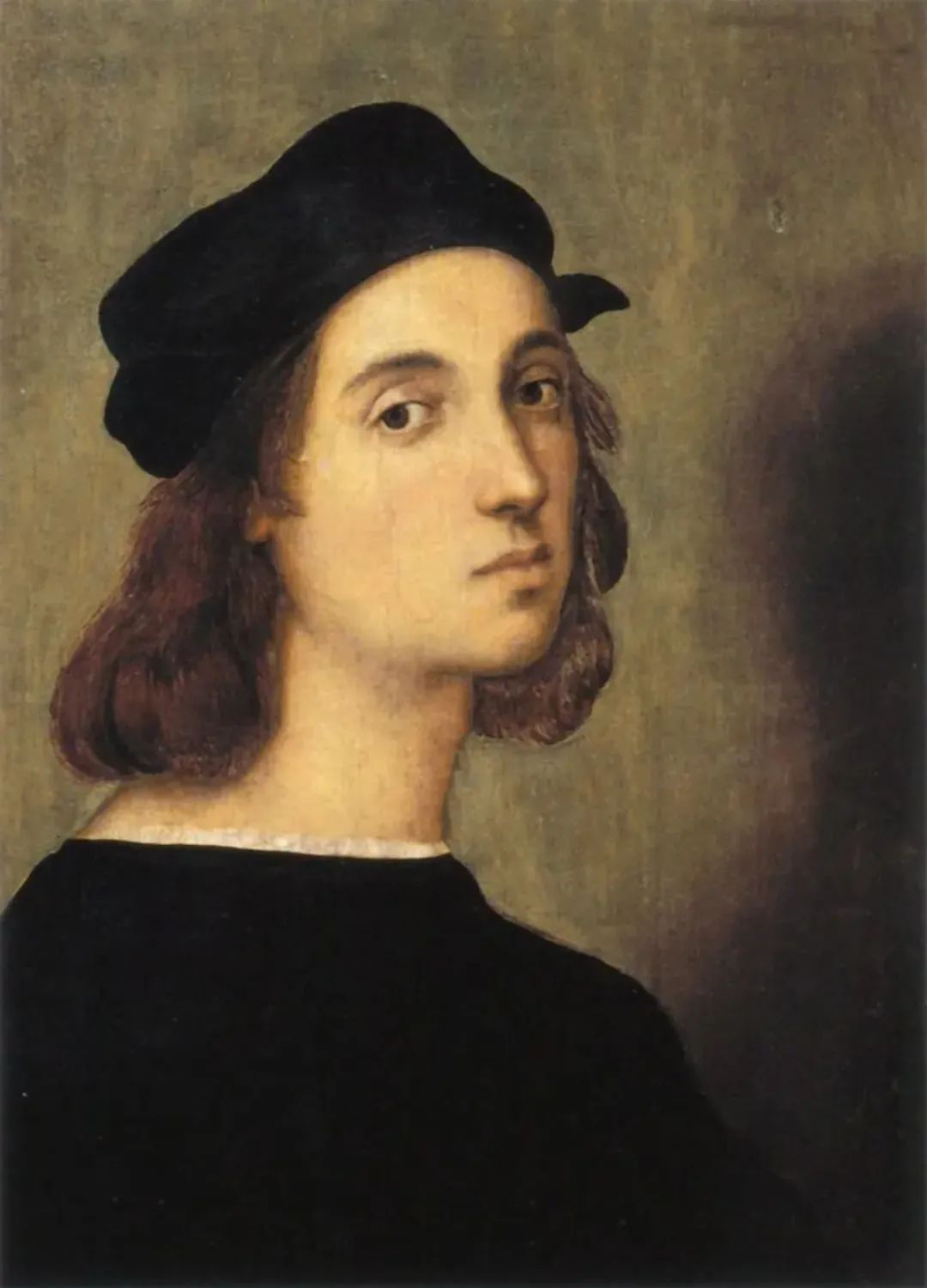
"Self-Portrait of Raphael"
Time of creation: around 1505
composition
Raphael's pursuit of symmetry and balance in composition gave his works the qualities of harmony and stability. In "The School of Athens", he skillfully arranged the characters on both sides of the picture and used the central axis to divide the picture into upper and lower parts to achieve left-right symmetry and upper-lower balance. This symmetrical and balanced composition guides the viewer's sight and makes the viewer feel an atmosphere of tranquility and stability. The symmetrical layout not only emphasizes the order of the picture, but also adds to the harmonious beauty of the picture. Raphael's unique compositional skills enable the work to achieve visual balance and stability, providing the audience with a comfortable and harmonious viewing experience.
Raphael skillfully used perspective and depth expression techniques in his paintings, injecting a strong sense of three-dimensionality and space into his works. In the masterpiece "School of Athens", he carefully blended distant and near scenery, and successfully created a realistic spatial effect by accurately adjusting the size and proportions of the figures. The audience can clearly see the hierarchical relationship between the foreground, middle ground and background. This sense of hierarchy makes the picture richer and three-dimensional. Raphael's exquisite mastery of perspective and his unique creativity in expressing depth give his works an unparalleled sense of three-dimensionality and space, which is amazing.
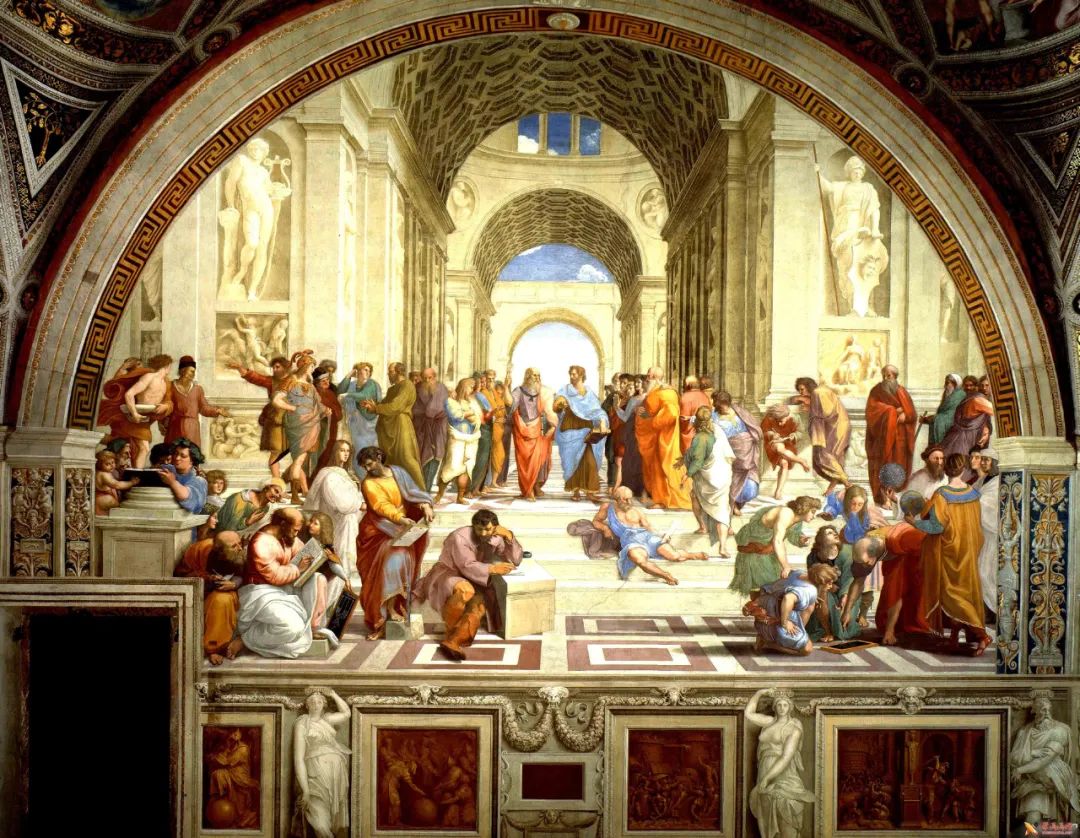
Raphael's "School of Athens"
Creation time: about 1510~1511
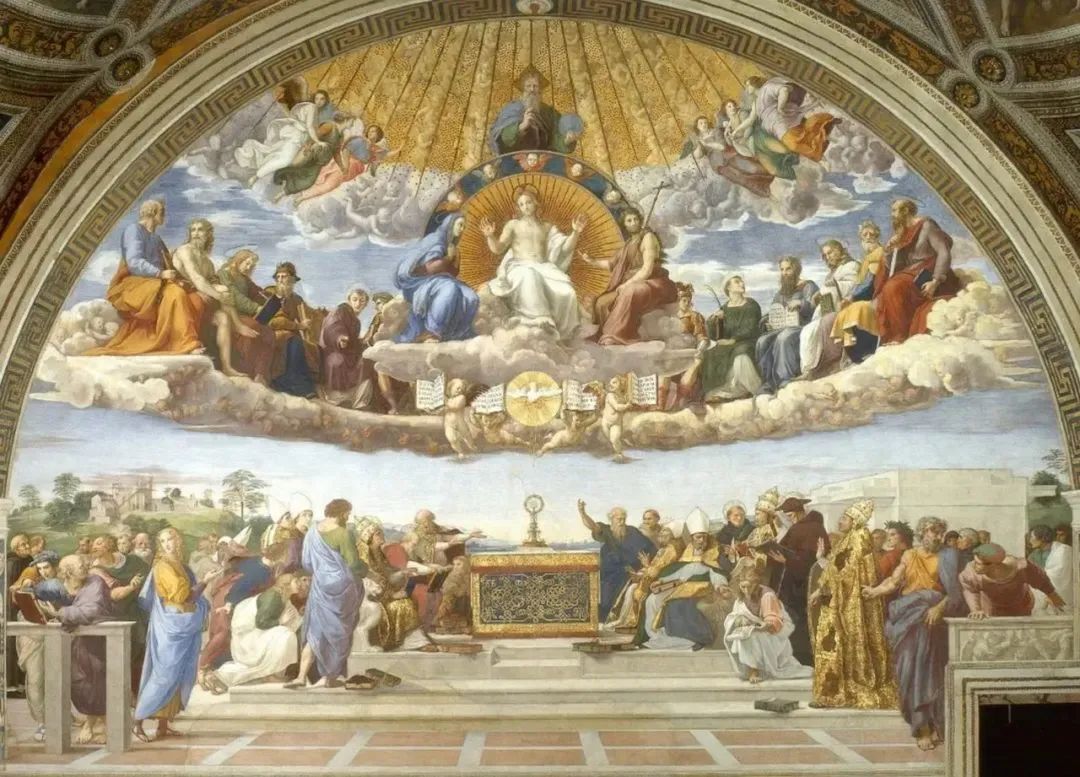
Raphael's Eucharistic Disputation
Creation time: about 1510~1511
Character creation
Raphael's outstanding painting skills enabled him to create figures that were both realistic and idealistic. In his masterpiece "The School of Athens", he meticulously depicts each character's facial expressions, muscle textures and clothing details, making the characters in the painting seem alive and lifelike. Viewing this work, people seem to be able to immerse themselves in the academic halls of that era, feeling the strong academic atmosphere and the complex emotional exchanges between the characters.
Raphael displayed extraordinary skill and keen insight when dealing with religious themes, perfectly capturing the sense of sanctity and nobility. Taking "The Virgin and Child" as an example, he skillfully depicts the emotional exchange between the Virgin and the Baby Jesus, allowing the viewer to feel a solemn and warm atmosphere. The image of the Virgin carefully created by Raphael combines the characteristics of nobility and gentleness, not only showing her warmth and tenderness as an ordinary mother, but also highlighting her otherworldly divine status. This perfect balance and meticulous attention to detail make people impressed by Raphael's skills.
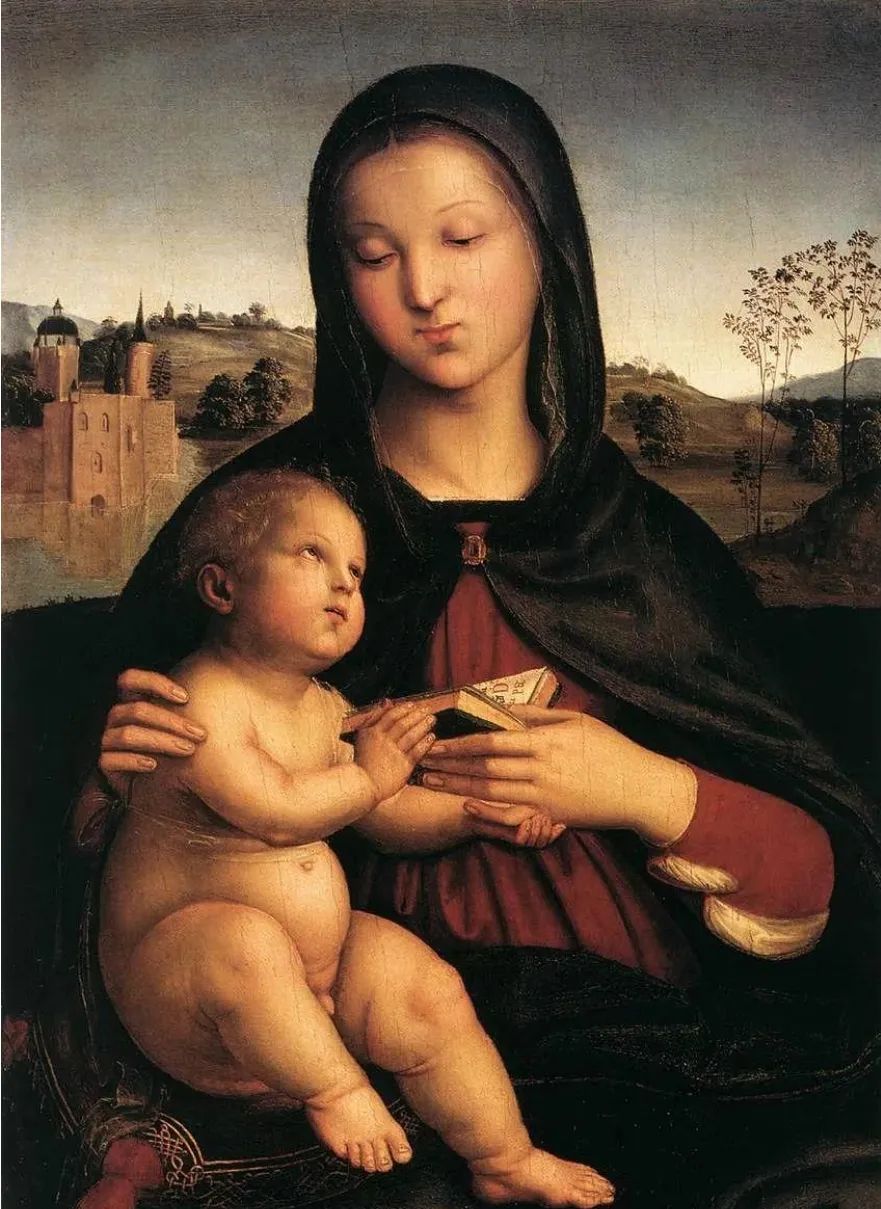
Raphael, Madonna and Child with the Book
Creation time: about 1503
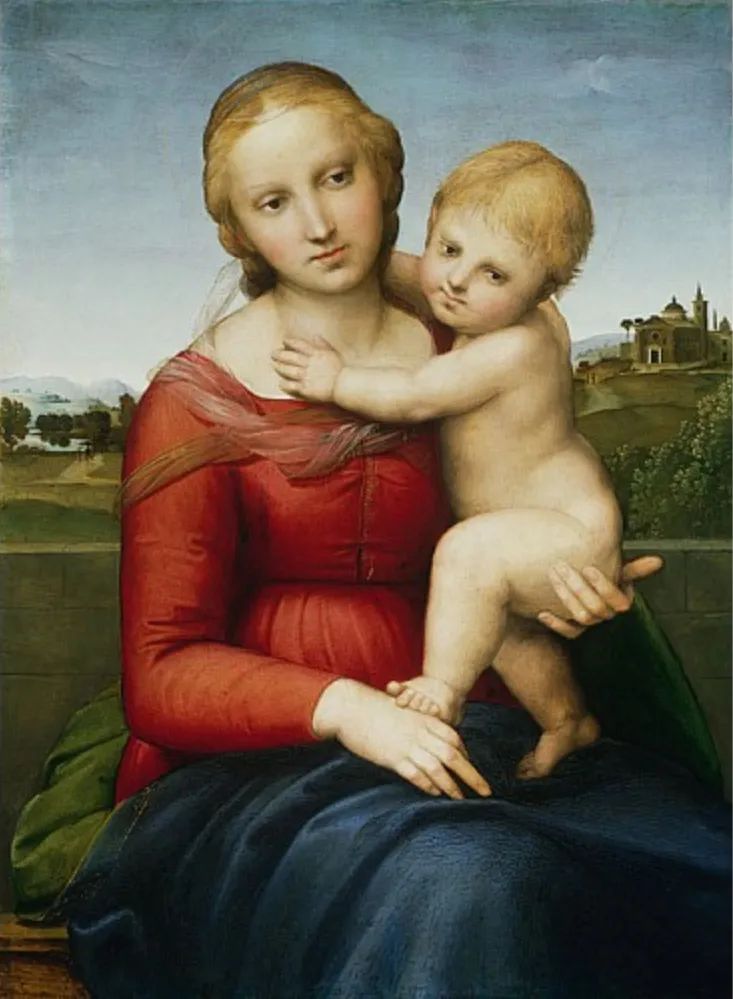
Raphael's "The small Cowper Madonna"
Creation time: 1505
color application
Raphael's paintings are famous for their bright and soft colors, which make people feel warm and comfortable when looking at them. He is good at using bright colors such as red, yellow, and blue to make the pictures vibrant. In "The Virgin and Child", he chose a soft pink background, which contrasts sharply with the skin color of the Virgin and the Baby Jesus, greatly enhancing the visual impact of the painting.
Raphael was a master of color and was good at conveying emotions and themes through color. In the work "School of Athens", he skillfully used blue and yellow to give the work an air of wisdom and sanctity. This exquisite use of color gives the work a deeper connotation. Raphael showed extraordinary talent in character creation, composition and use of color. He created a series of stunning works with realistic and idealized figures, symmetrical and balanced compositions, and bright and soft colors.
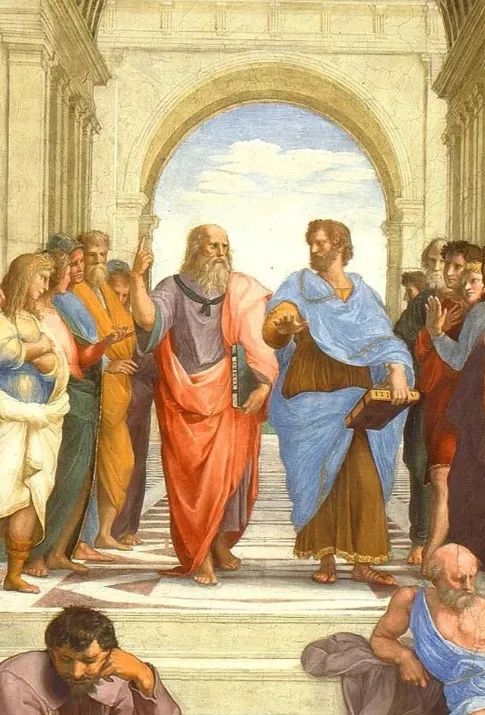
Details of "School of Athens"
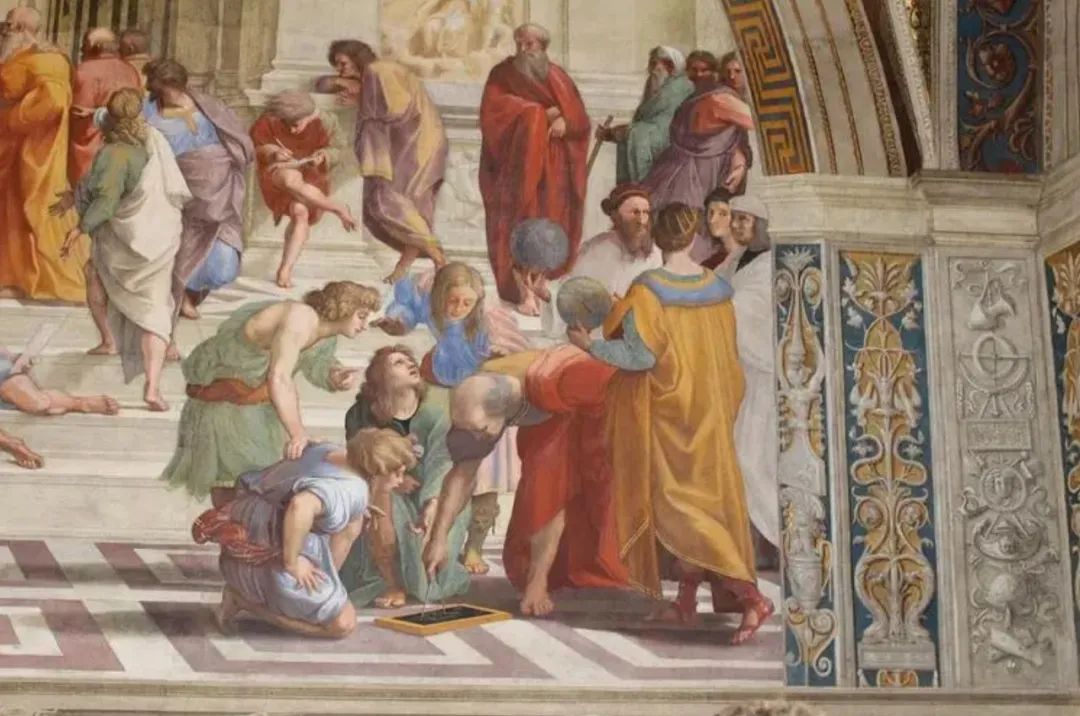
Details of "School of Athens"
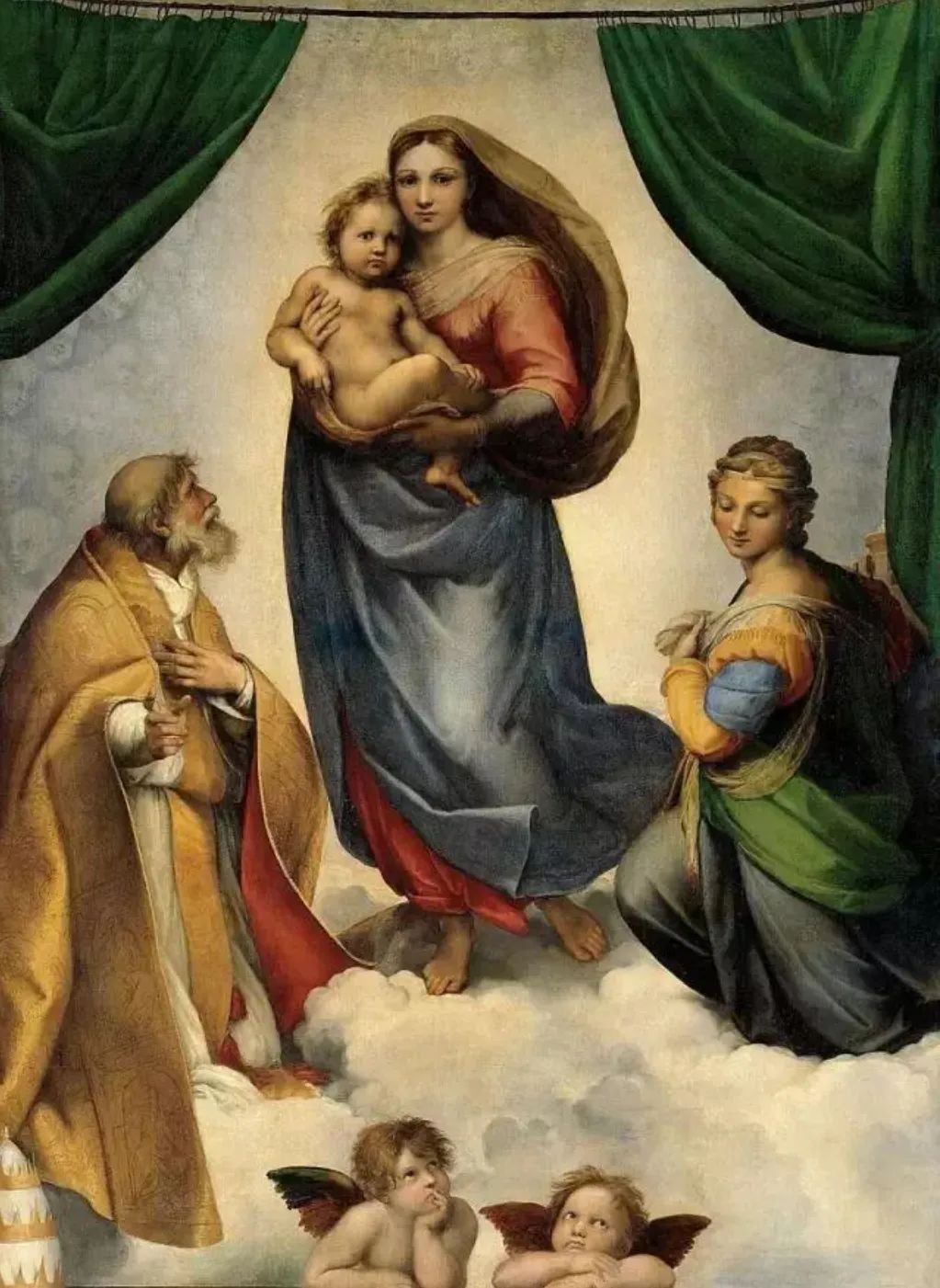
Raphael's "The Madonna and Saint Sischede"
Creation time: about 1513-1514
Raphael embraced the Neo-Platonist artistic ideals and used his refined painting skills to bring Renaissance humanism to its extreme. Although he left few works, the brilliance displayed by his works had a profound influence on later generations.
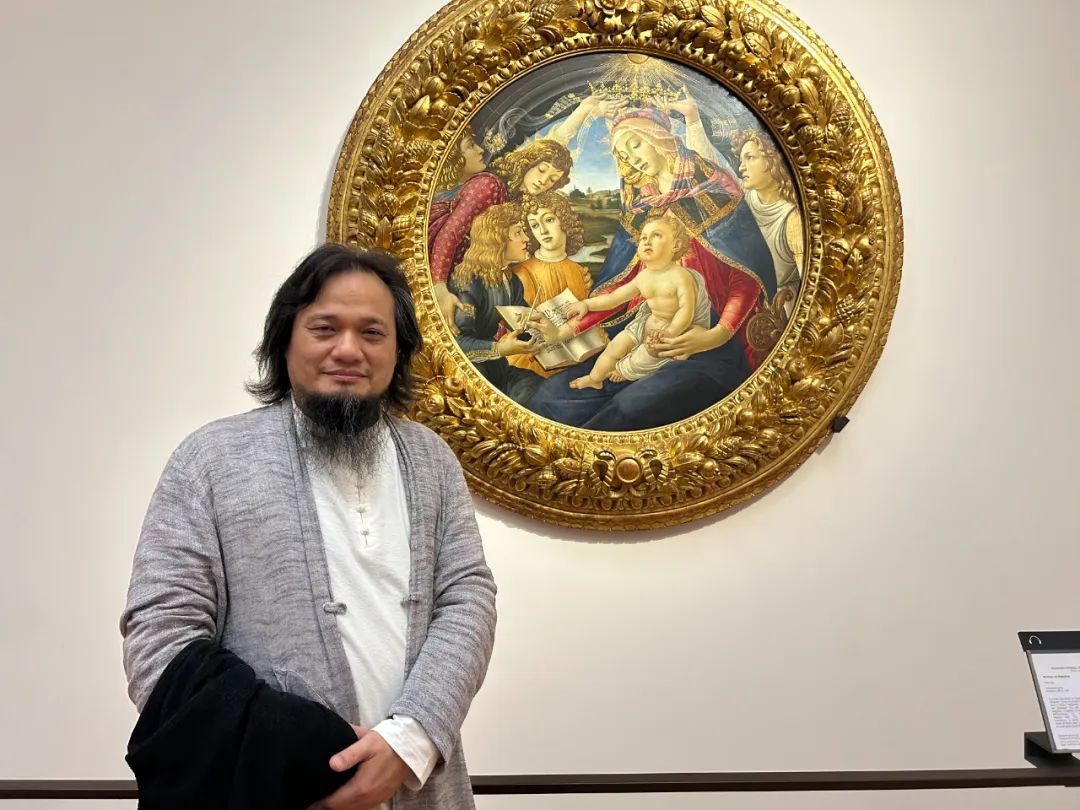
Wu Keyang in front of Sandro Botticelli's "La Praise of Madonna"
Appreciation of works
Appreciation of works
Wu Keyang's "Oriental Spiritual Painting"
Integrating the profound heritage of oriental traditional culture
The painting style is spiritual and spiritual.
High dimensions present the origin and meaning of life
Seek the essence of everything in the universe
And the awareness and perception of each life at the moment
This triggers the viewer to return to their innermost thoughts.
Unique in exploring contemporary spiritual aesthetics
—Oriental Spiritual Painting—
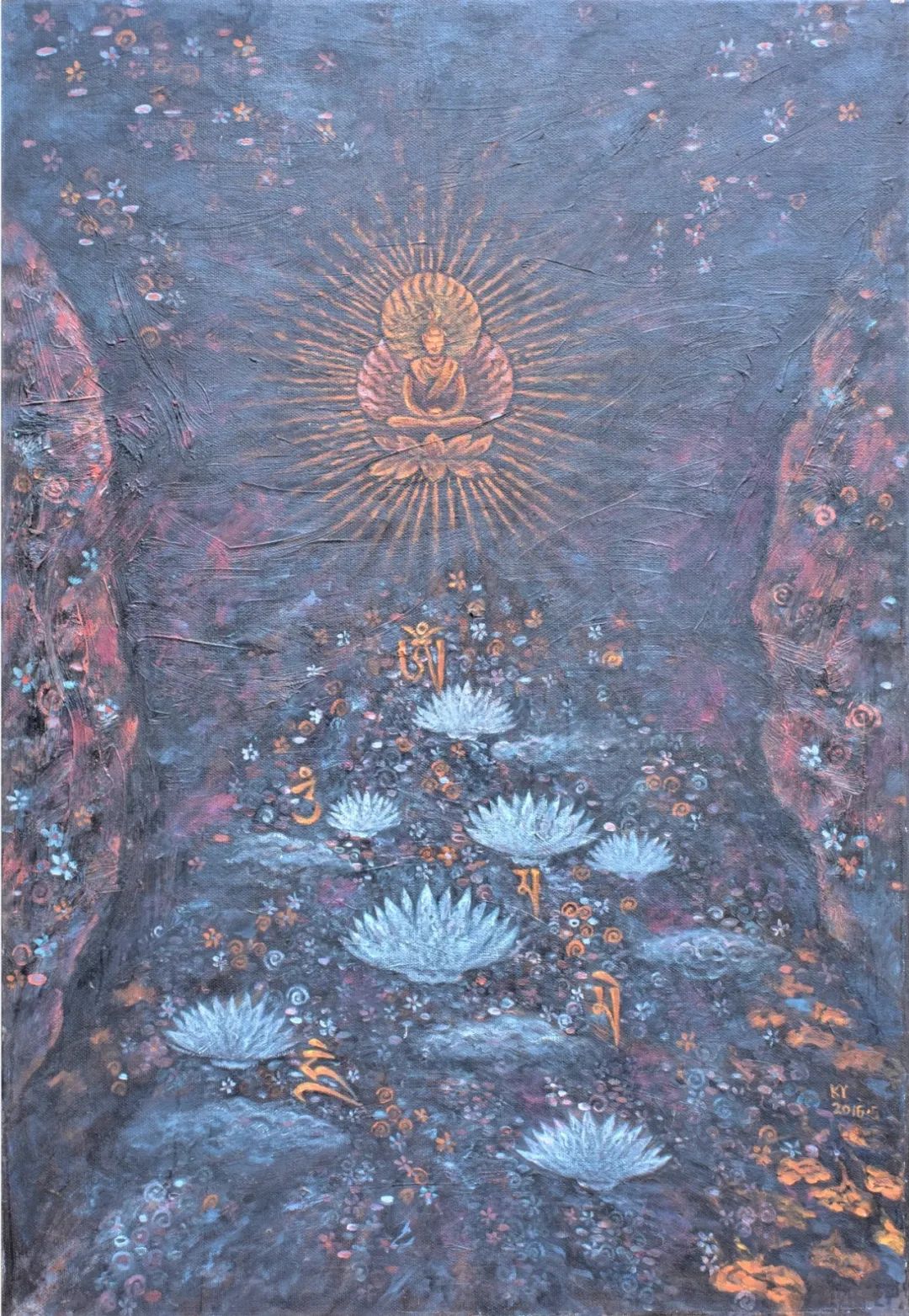
Oil painting "Flower of Life"
Size: 110x160cm
Creation time: 2016
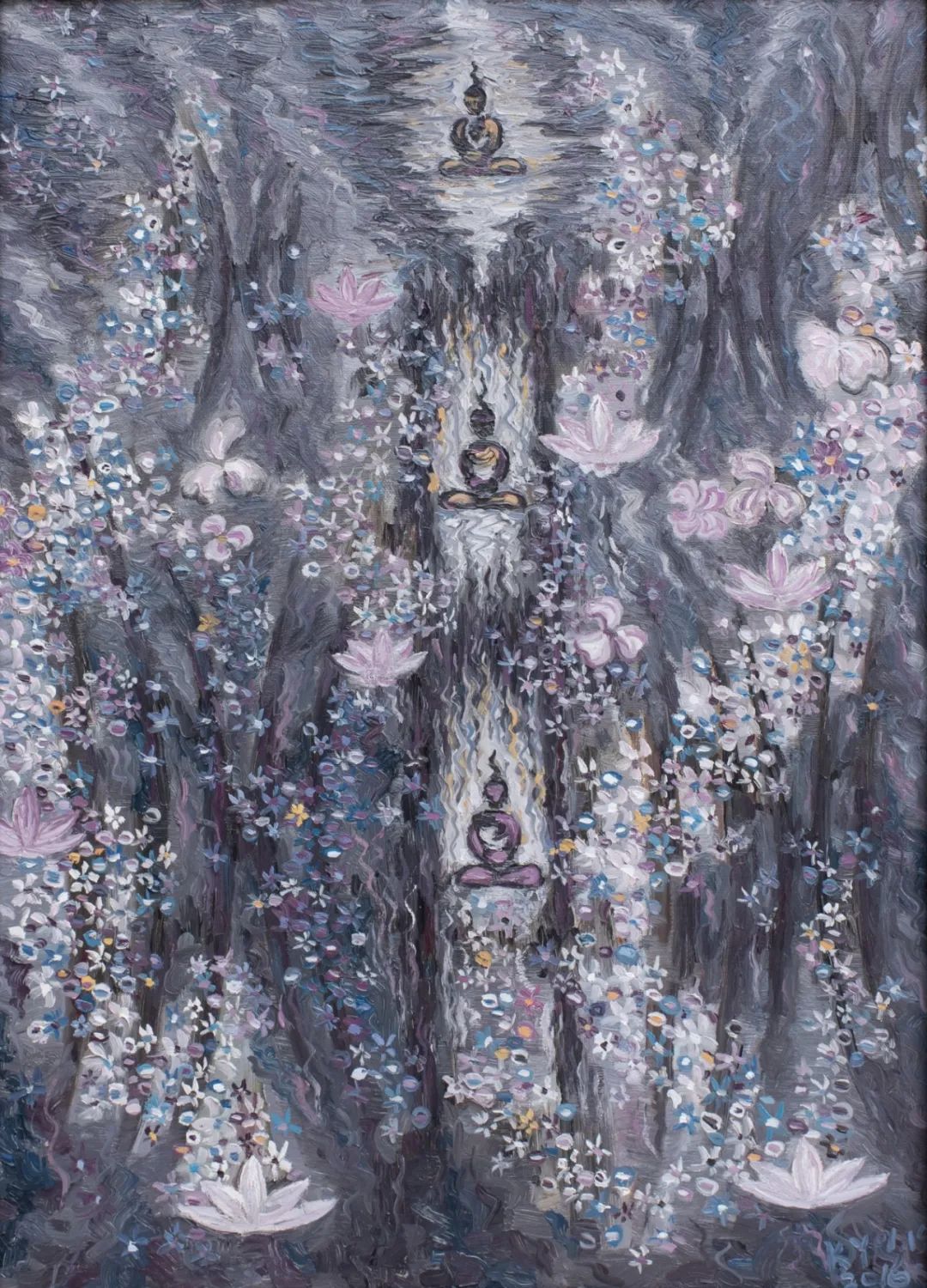
Oil painting "Sequence"
Size: 60x80cm
Creation time: 2016
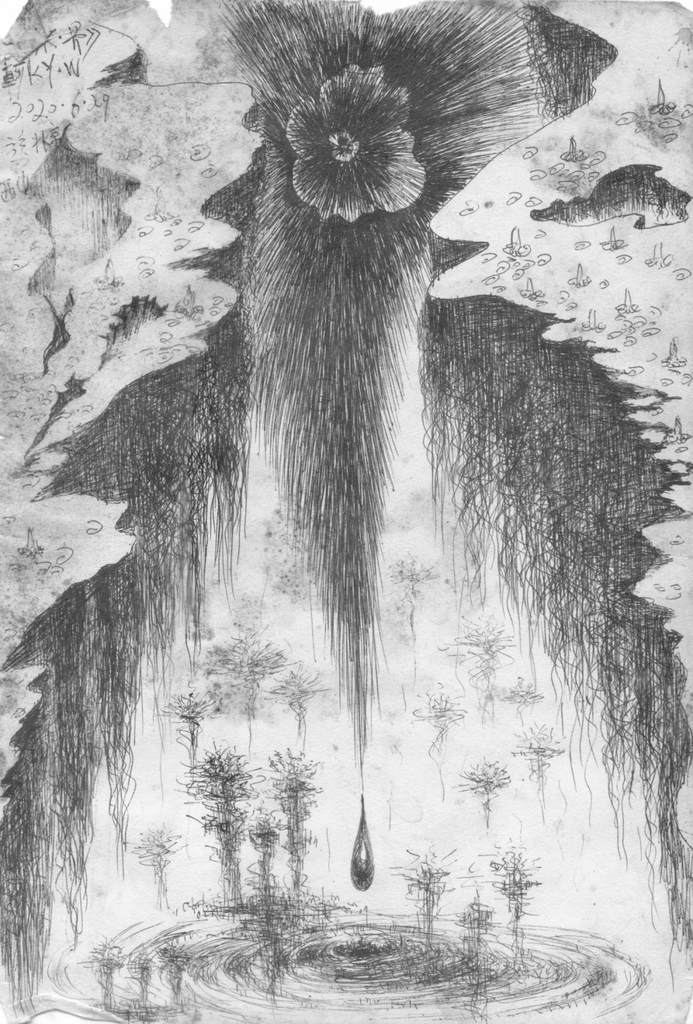
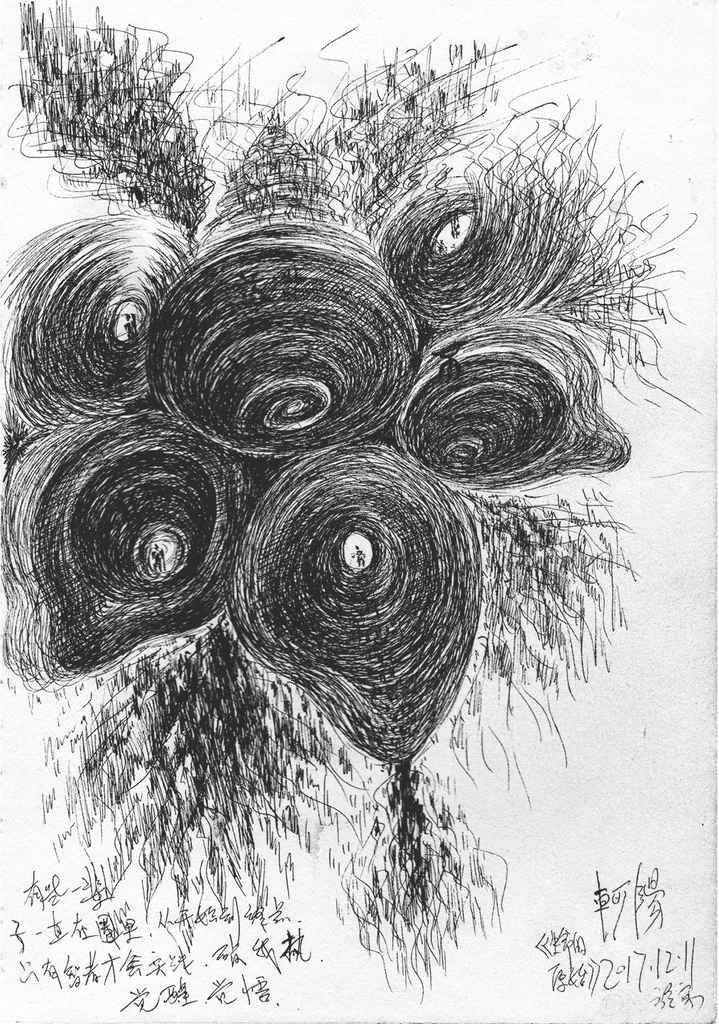

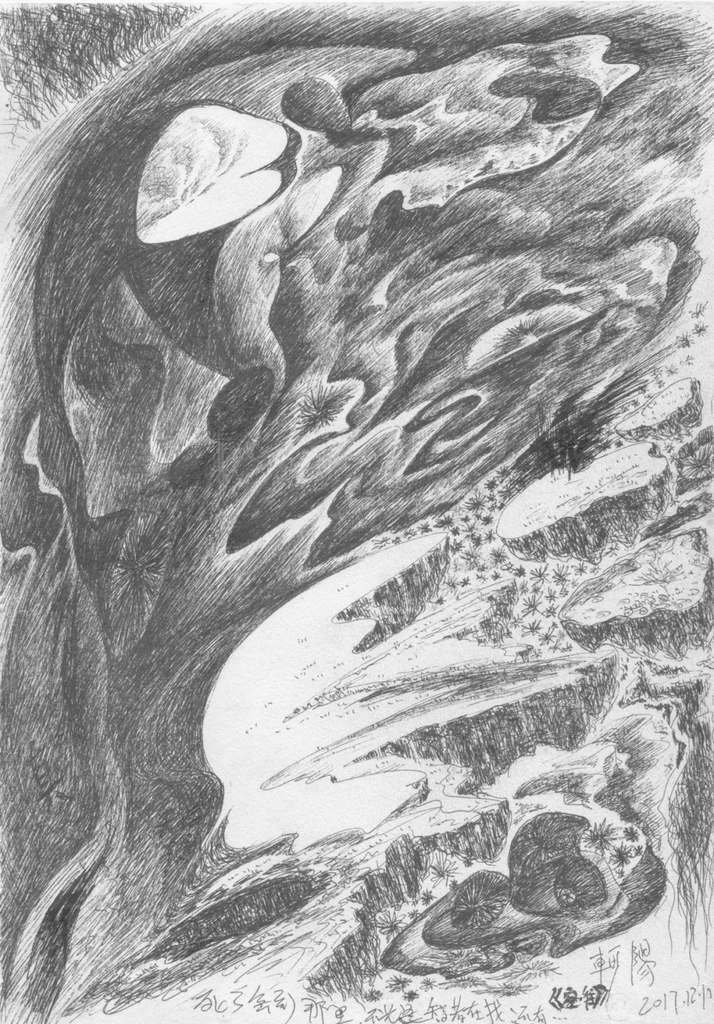
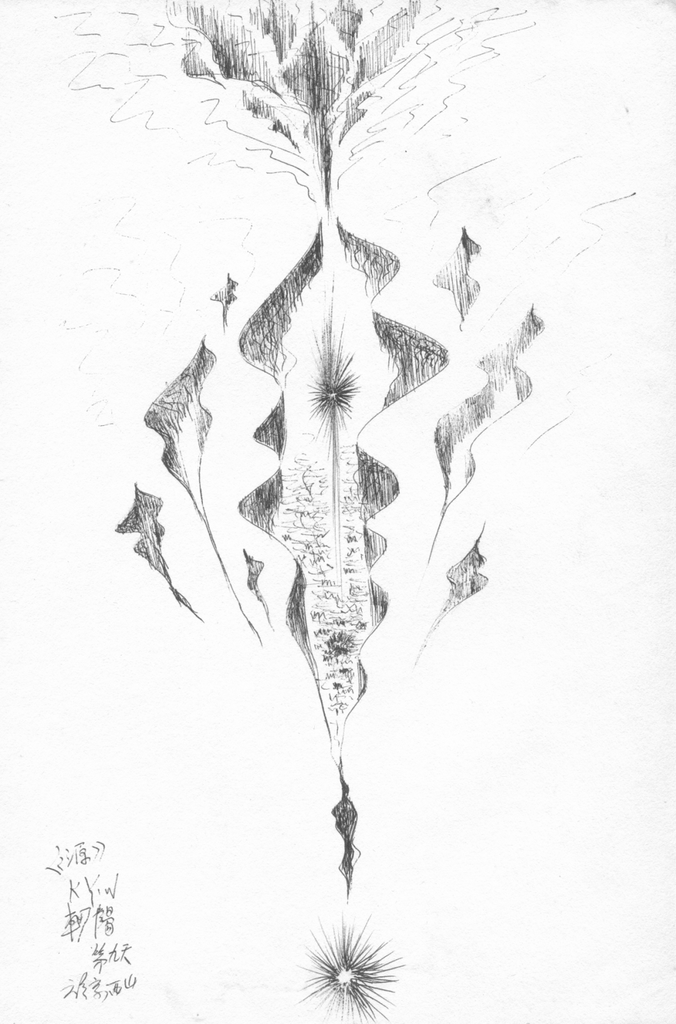
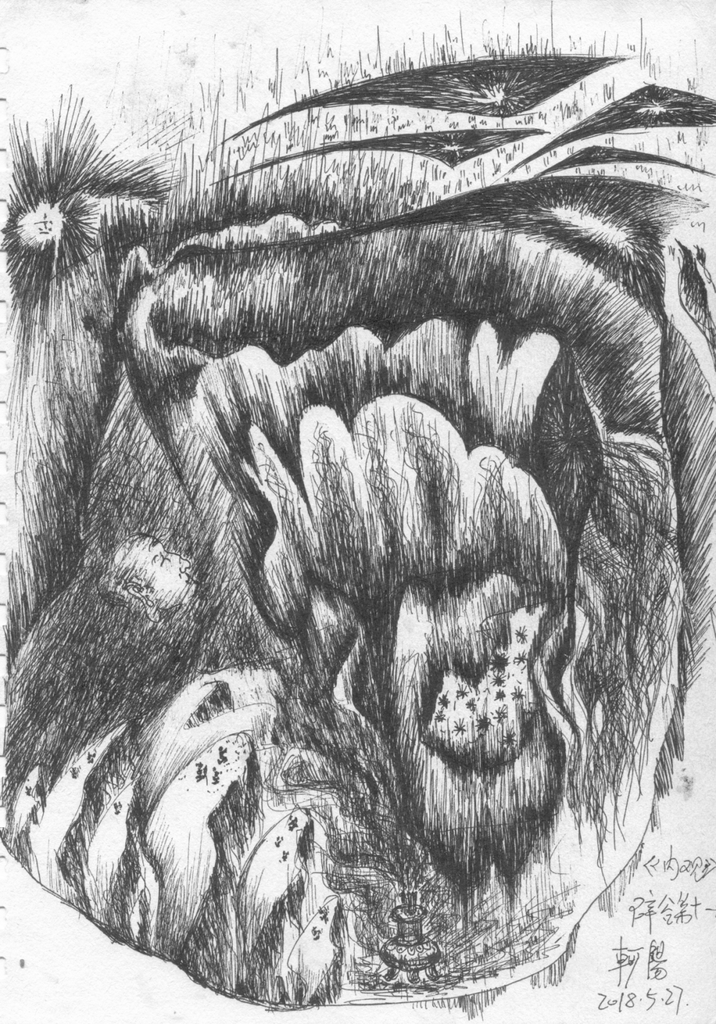
The pictures from left to right are:
"Boundless", "Origin of Life", "Infinite"
"Emptiness", "Source" and "Vipassana"
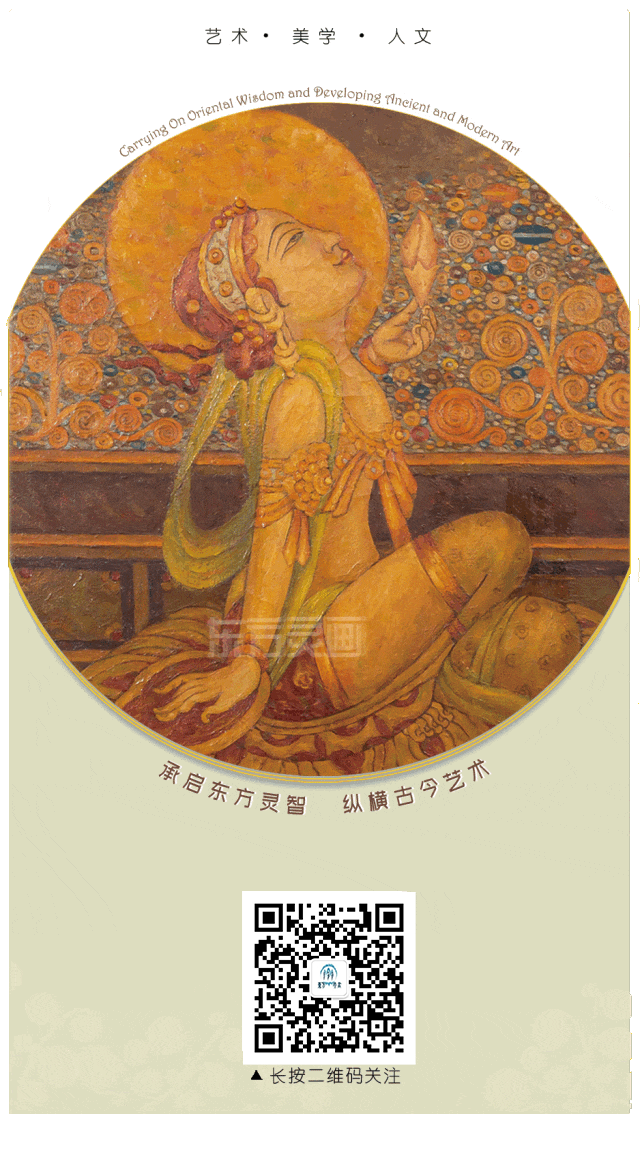
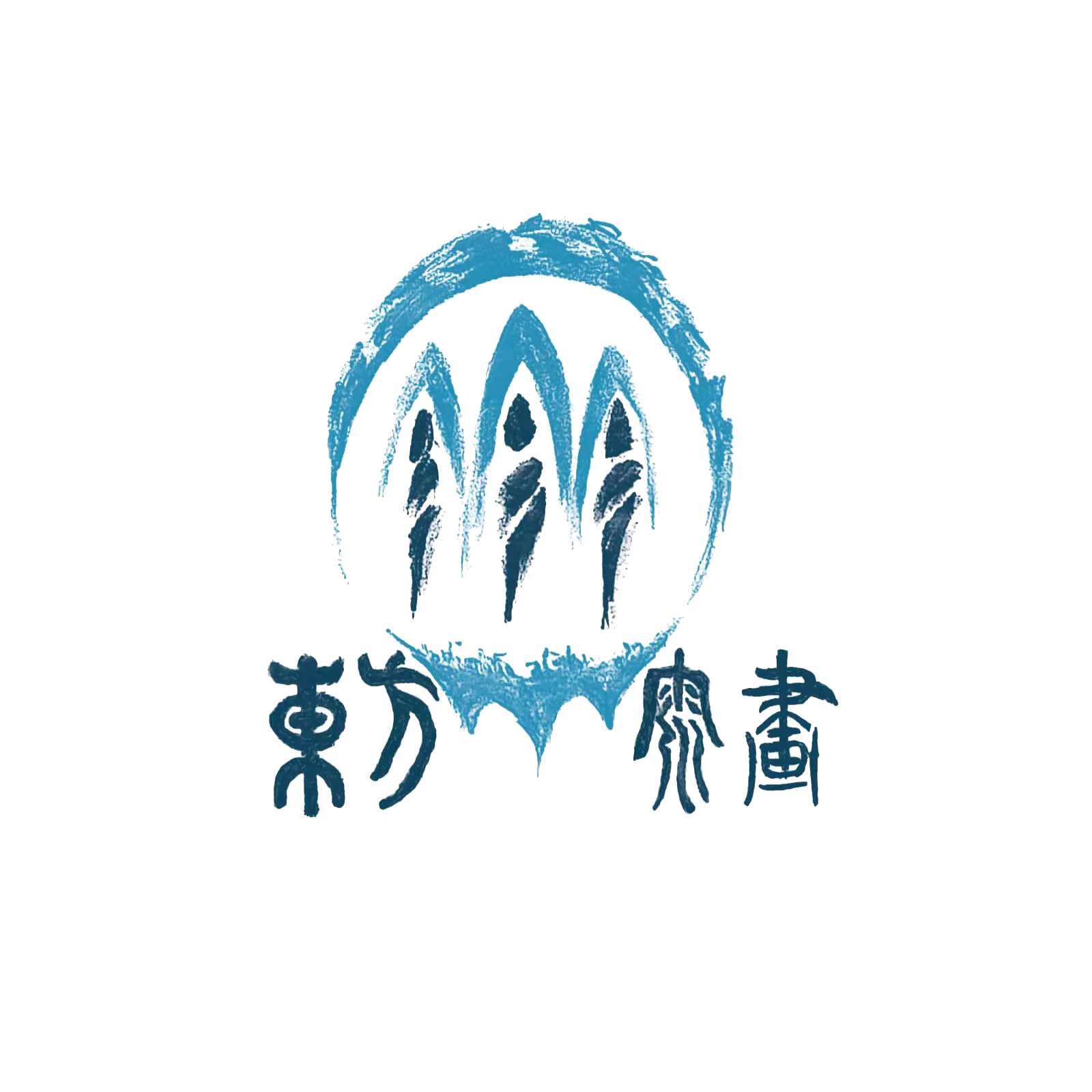
Leave a Reply